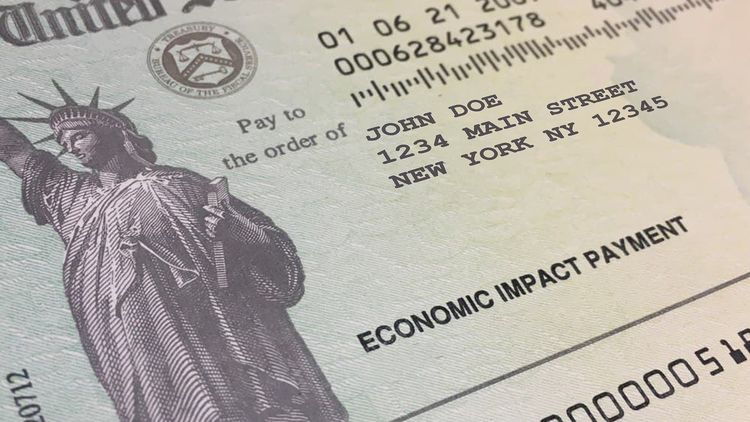Filing Your Taxes Early Might Cost You A Stimulus Check

Every year, the race is on to file your taxes promptly or, better yet, before the filing deadline set by the IRS. Visions of an early refund dance in your head, as do thoughts of using that newfound money to help buy a new car, take the fam to Disney, or finally furnish your home in the style to which you’re accustomed.
But you might want to hold off signing on the dotted line when it comes to sending in that early tax return: Postponing your 2020 tax return could mean more cash in your hands when it comes to the third round of COVID stimulus checks. In fact, your 2020 taxes could keep you from receiving the full $1,400 in the latest stimulus program, or prevent you from being eligible for any amount of stimulus funds this time around.
How can that be? Read on to find out how your tax return could impact that stimulus check you’ve been counting on.

Income Matters When It Comes To Stimulus Checks
The next round of stimulus checks comes with income limits, and the IRS will look at your most recent tax return in its system to determine the amount of money, if any, you’re eligible to receive.
Under the current stimulus relief plan, the $1,400 payments phase out and smaller amounts will go to:
- Individuals with adjusted gross incomes over $75,000, but lower than $100,000
- Married couples filing taxes jointly and who have incomes above $150,000, but under $200,000
- Head-of-household filers with incomes higher than $112,500 but less than $150,000
Under the current stimulus guidelines, you won’t receive a stimulus check at all if you fall into any one of these categories:
- Single filer making $100,000 or more
- Couple earning $200,000 or higher
- Heads of household with an income of $150,000 or more

File Early Or Hold Back?
The math is simple: If you experienced a loss of income last year, as did many Americans owning to the pandemic, you might qualify for a larger stimulus check if you submit your 2020 return to the tax agency before the new stimulus payments are distributed.
But the reverse also holds true: If you made more money in 2020 than you did in 2019, you might want to hold back on submitting your return until the stimulus checks go out. For example, a single filer with an adjusted gross income of $73,000 in 2019 whose income increased to $90,000 in 2020 would not qualify for a full $1,4000 stimulus check based on the 2020 income – but would qualify based on the 2019 income. In that case, holding off on filing a 2020 return until the IRS sends out the stimulus payments would make better sense financially.
